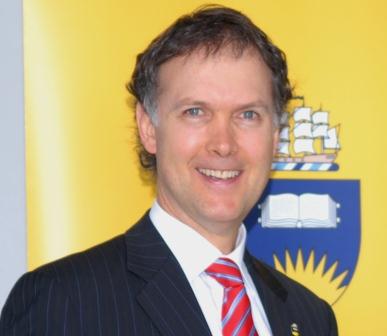The new rural health commissioner will focus on building a national program to train multi-skilled rural generalist doctors
The rural doctors’ movement has called on all sides of politics to help Australia’s first National Rural Health Commissioner “stop the rot” in health services in country Australia.
The challenge for Professor Paul Worley (pictured above), who has been appointed for a two-year term, begins with building a national program to train multi-skilled rural generalist doctors in a bid to fix disparities in healthcare access.
“My first priority will be to listen and consult carefully,” Professor Worley told The Medical Republic, after his appointment was met with a standing ovation at the Rural Medicine Australia annual conference in Melbourne at the weekend.
“The key will be working closely with medical colleges, universities, and state and territory jurisdictions, and working out how we train and employ people in different state contexts. The pathway will have different guises in different jurisidictions.
“But we are not coming at this from scratch,” he added. “A great program has already been developed in Queensland, and there are pilots in NSW, Victoria and Tasmania.”
Professor Worley, a former dean of medicine at South Australia’s Flinders University, was lifted into the hot seat after a brief tenure this year as executive director of medical services at Country Health SA Local Health Network.
Outgoing president of the Rural Doctors of Australia, Dr Ewen McPhee, said Professor Worley was well-placed to guide significant advances in rural health.
Dr McPhee called for continued bipartisan support of the commissioner’s role and urged all jurisdictions to look at applying the principles of rural generalism – in which GPs are equipped with advanced procedural and other skills – to suit their circumstances.
“One of the key things is getting the jurisdictions on board and getting over this hump of saying Queensland is so good and none of us think we can implement that,” Dr McPhee said.
“They’re closing birthing units across the states, whereas Queensland is opening them,” he said.
“They are withdrawing procedural services such as anaesthetics and surgery from small rural services, so country people have to travel, and often they will less be likely to seek care. Cancer care and cancer services are a major issue.
“Challenging some paradigms and really focusing on outcomes – that’s what I want to see. Better access and equity, and stop the rot in terms of withdrawing services from rural people.”
The Queensland GP, who was also considered as a top contender for the commissioner’s job, said Professor Worley was equipped with a long history of involvement in rural health, as well as academic and public-private sector experience.
“He should have the skills and the connections to make significant advances,” Dr McPhee said.
A veteran rural doctors movement leader and past president of ACRRM, Dr Bruce Chater, said it was a “visionary” move by government to create the commissioner role and have someone who could provide fearless advice to both the bureaucracy and the federal ministers.
“I think Paul Worley is a wonderful choice,” Dr Chater said, after the announcement by Assistant Health Minister Dr David Gillespie.
He described Professor Worley as a quiet achiever who did not take no for an answer, praising his pioneering work in opening up extended rural placements for medical students at Flinders.
“He did what was impossible. No other university had put medical students out for a whole year into rural areas. He just said, let’s do it.
“I think he’s got the right stuff, and we are looking forward to him showing that Australia can continue to lead the world in its advocacy for rural areas.”
Before becoming dean of the medical school in 2007, Professor Worley steered Flinder’s rural clinical school. He also led rural and remote medical education initiatives in the Northern Territory and Victoria.
Professor Lucie Walters, immediate past president of ACRRM, offered a vote of confidence in her fellow South Australian.
“The rural health commissioner will need to pull several rabbits out of several hats. There are only a few people in rural medicine capable of doing that, and Paul is one of them,” she said.
“The commissioner will have influence but not power, and there will need to be early deliverables.”
Big disparities between the states in embracing rural generalist training are one marker of the challenge ahead.
Where Queensland currently has 312 rural generalist trainees in the pipeline (on the heels of 93 fellows) and NSW has 100, South Australia does not have a generalist training pipeline as such.


